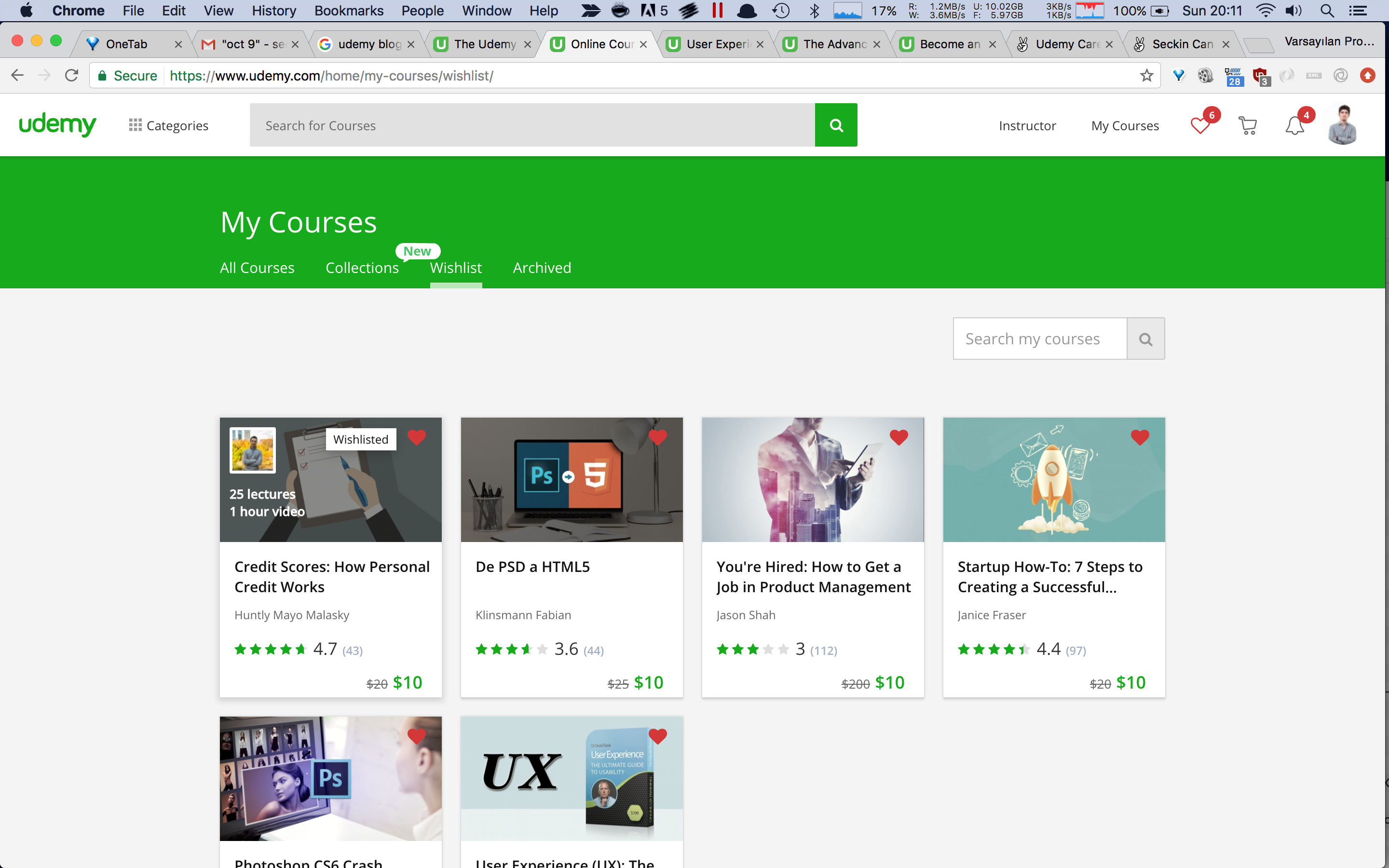Landing Page - Header
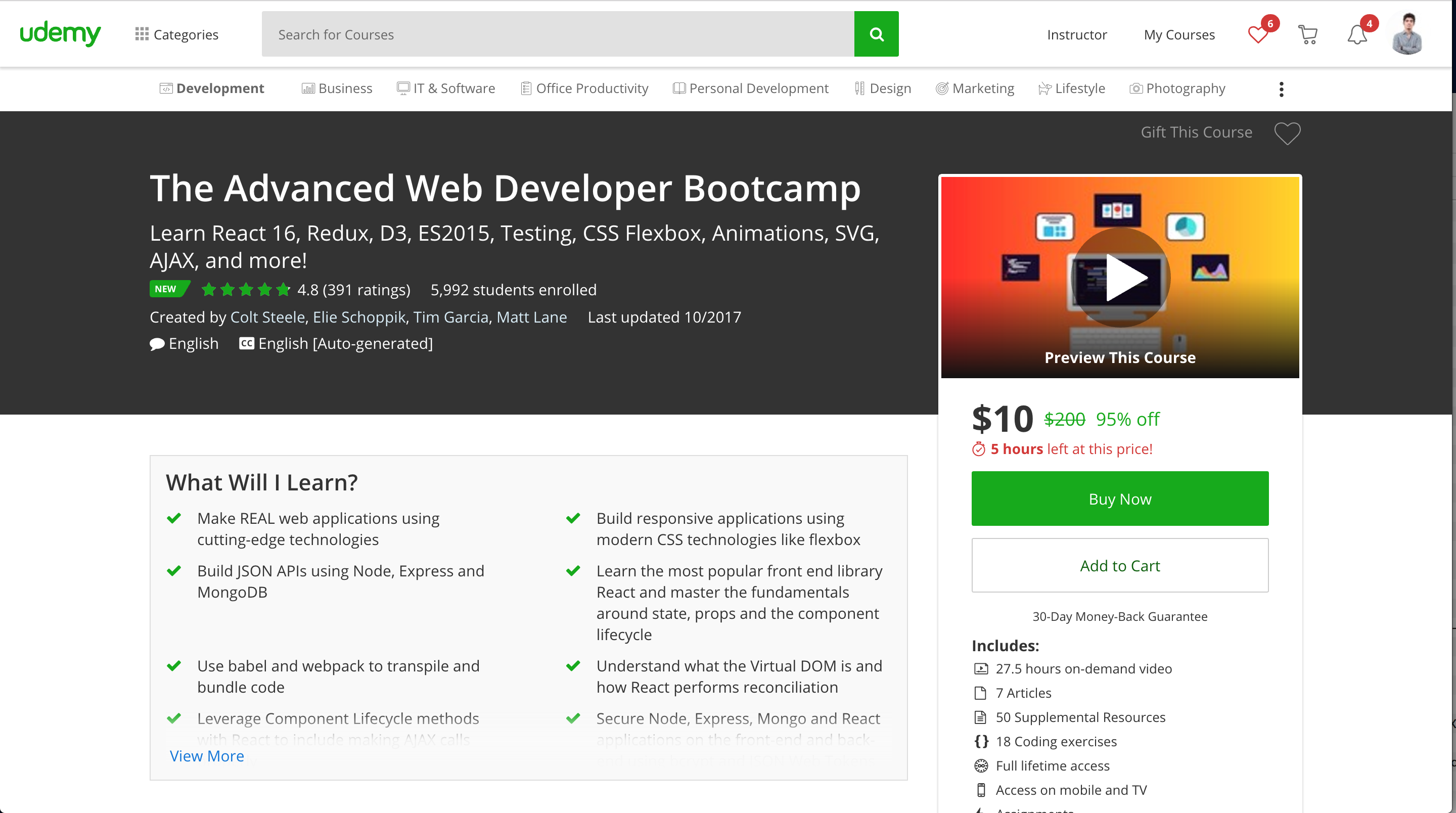
Landing Page - Curriculum
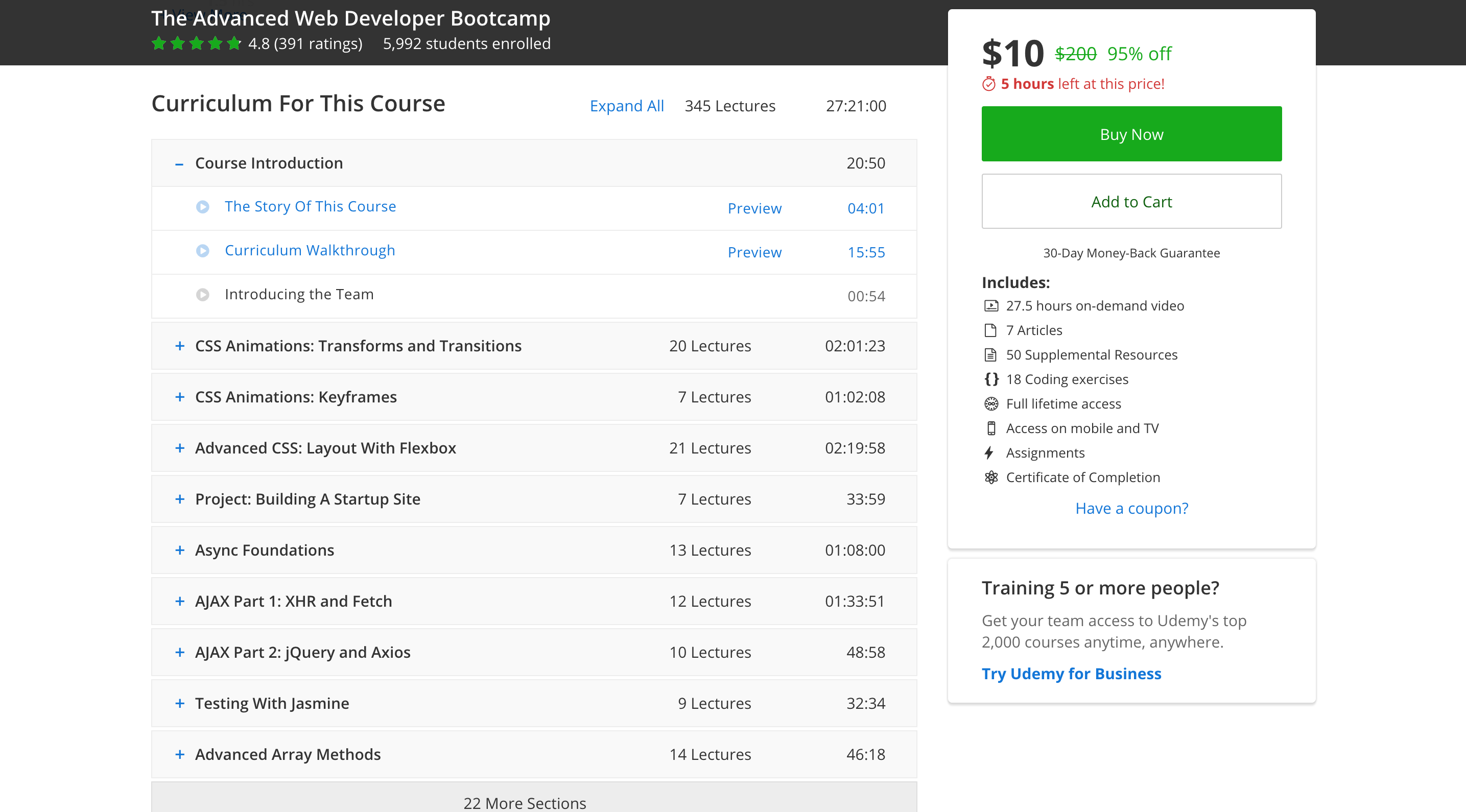
Landing Page - Similar Courses & Instructor Info
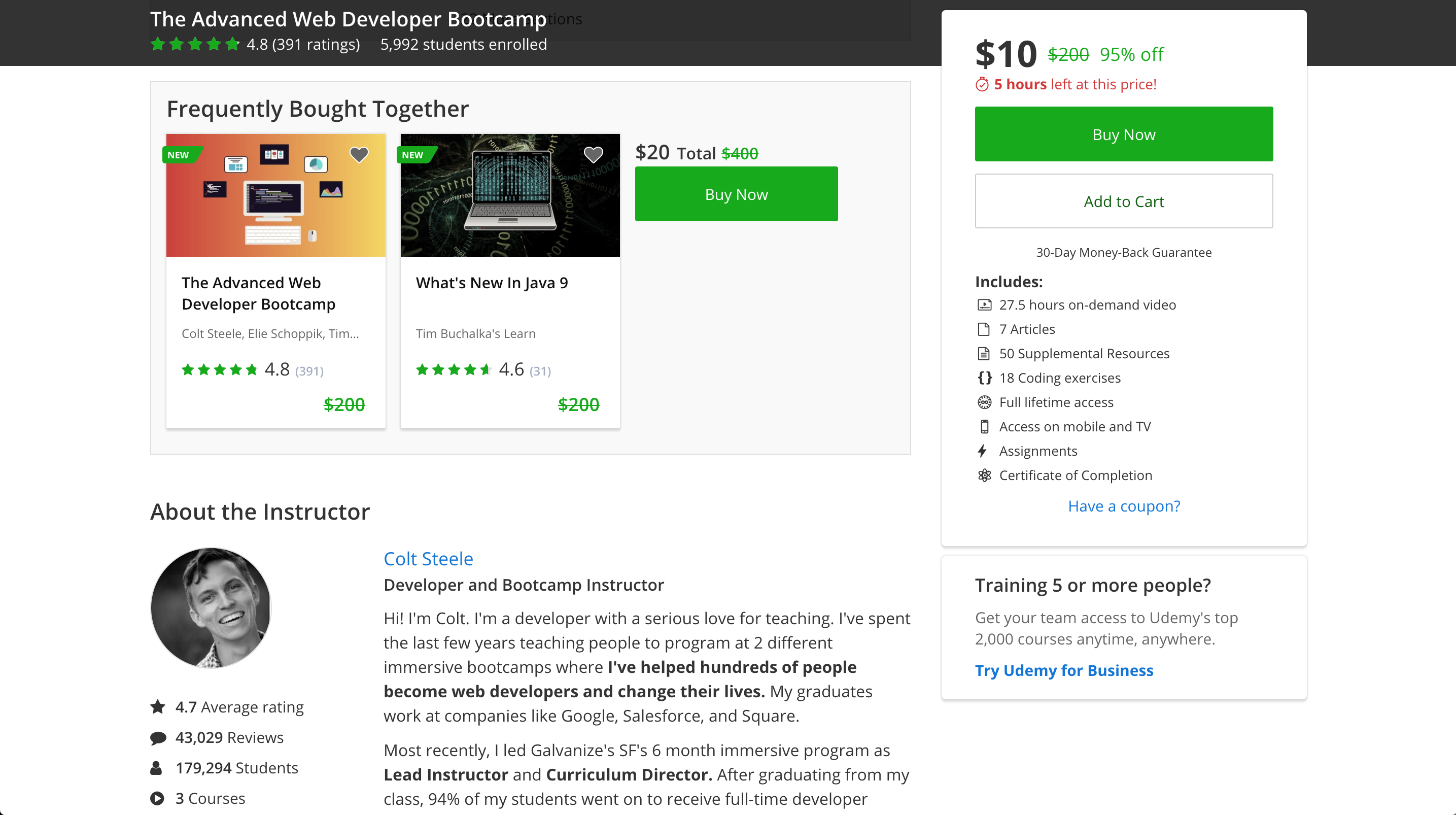
Landing Page - Reviews
Correct way of sorting the reviews:
Score = Lower bound of Wilson score confidence interval for a Bernoulli parameter
We need to balance the proportion of positive ratings with the uncertainty of a small number of observations.
What we want to ask is: Given the ratings I have, there is a 95% chance that the “real” fraction of positive ratings is at least what?
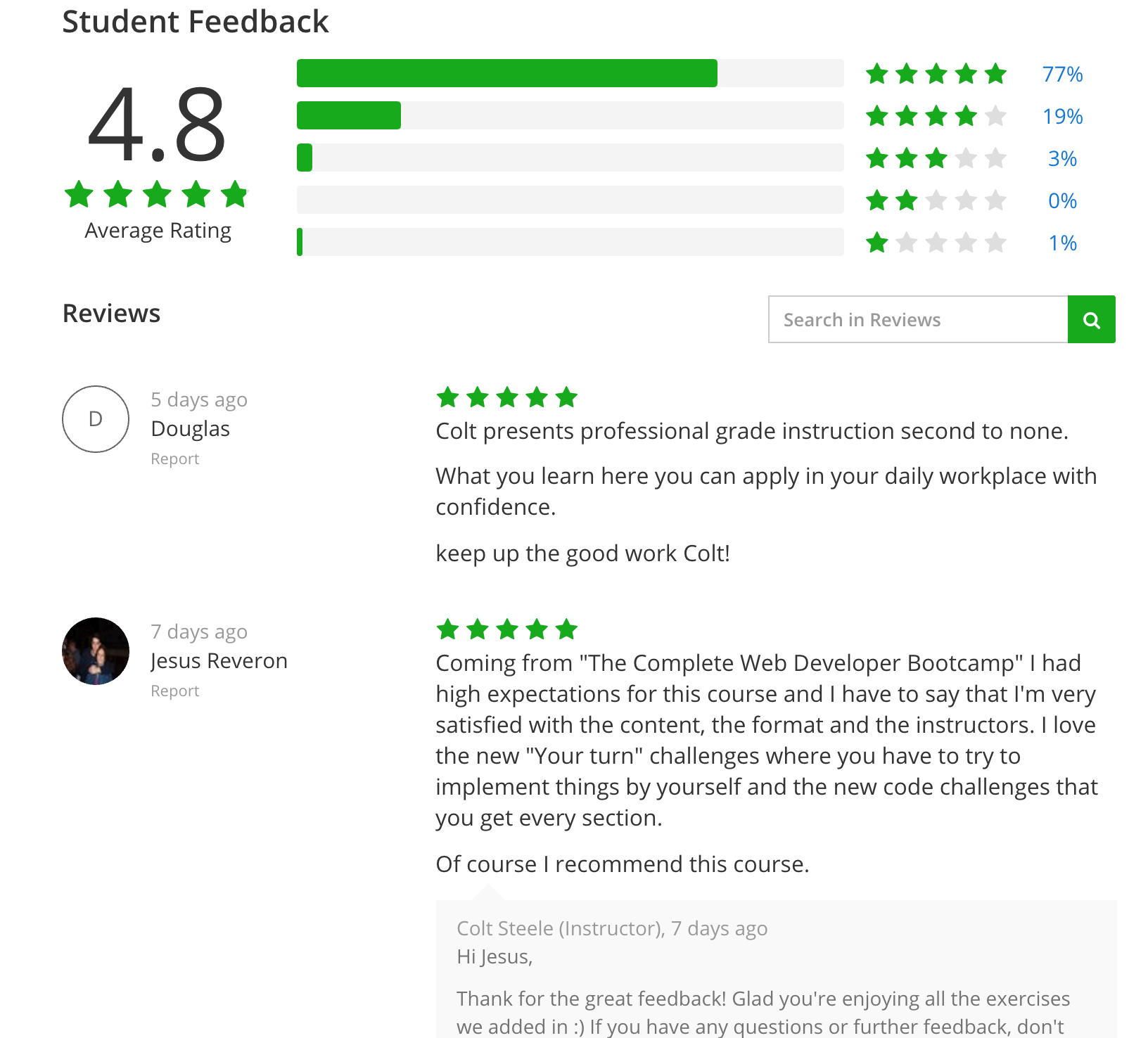
Landing Page - Similar Courses
Implemented the 'course-box'
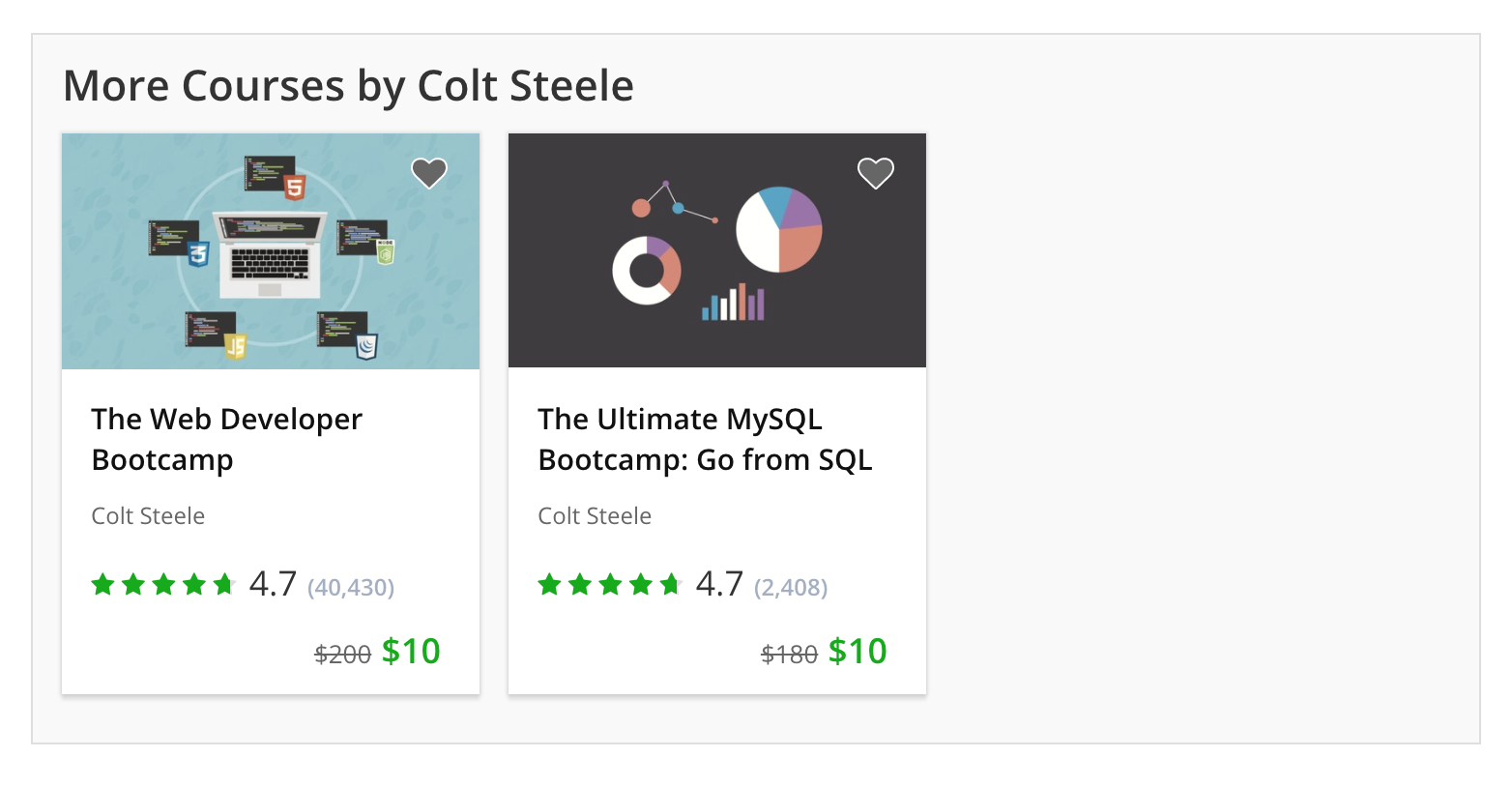
Letting users review the course material like below substantially increased our conversion rates
Came up with this idea and implemented with the CEO's support though most of the company thought this would backlash since people would just download all the content quickly.
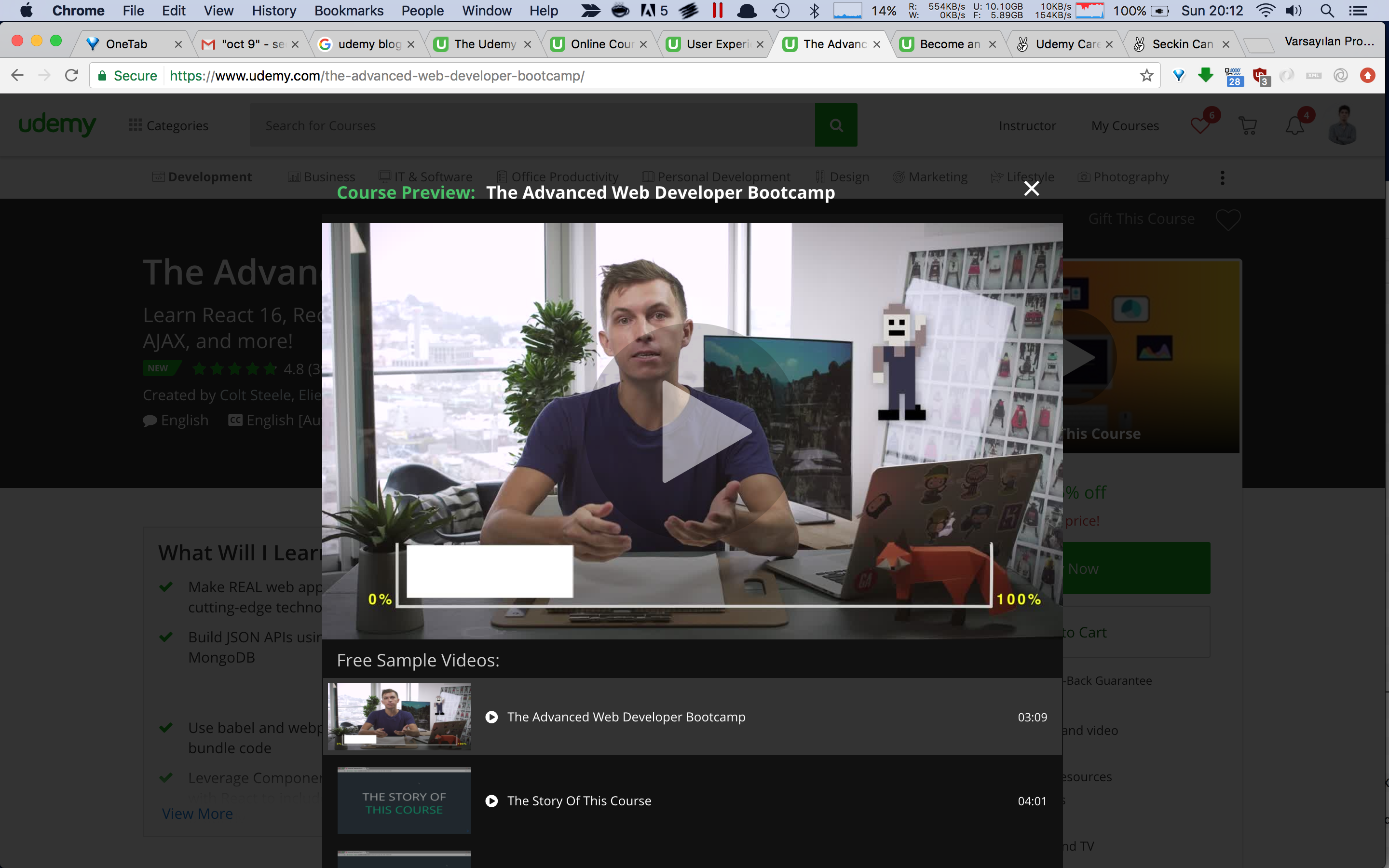
Implemented Feeds
Came up with the idea and implemented feeds: one for each user(which we ended up retiring) and one for each course(which ended up one of the most successful products we have ever launched), so, people can easily follow the activity happening in a course and also easily see what other interesting users and their friends are up to.
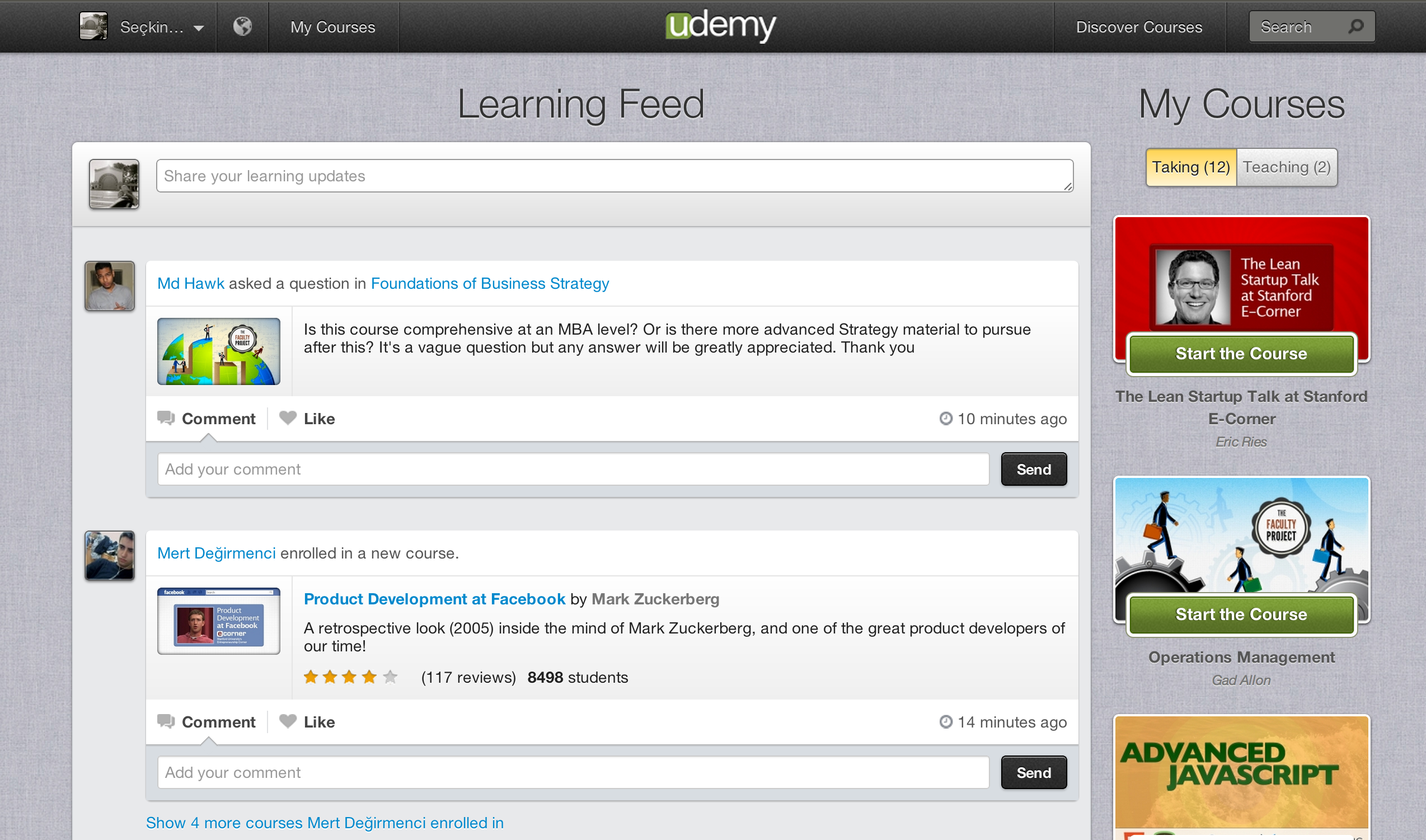
Implemented these feeds with personalization(persistent aggregations for individual users) when we had 100K users and the system was still in use when Udemy reached 4M users without any major modifications.
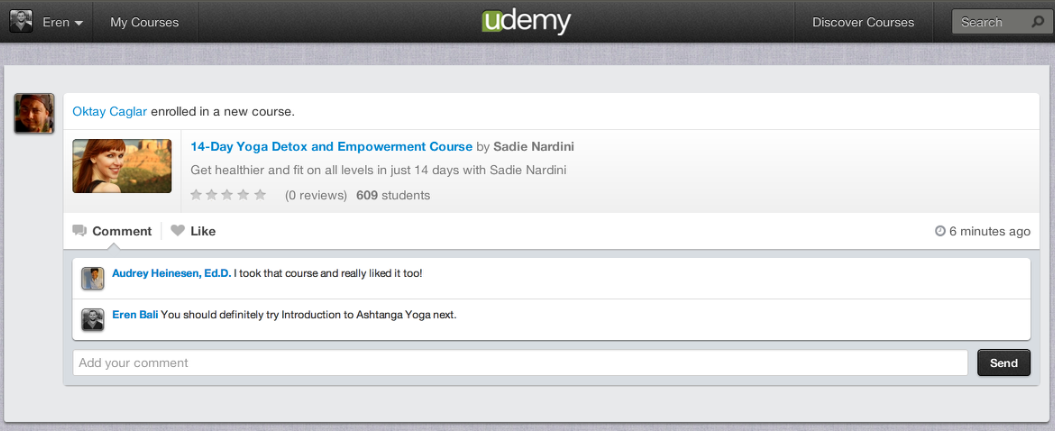
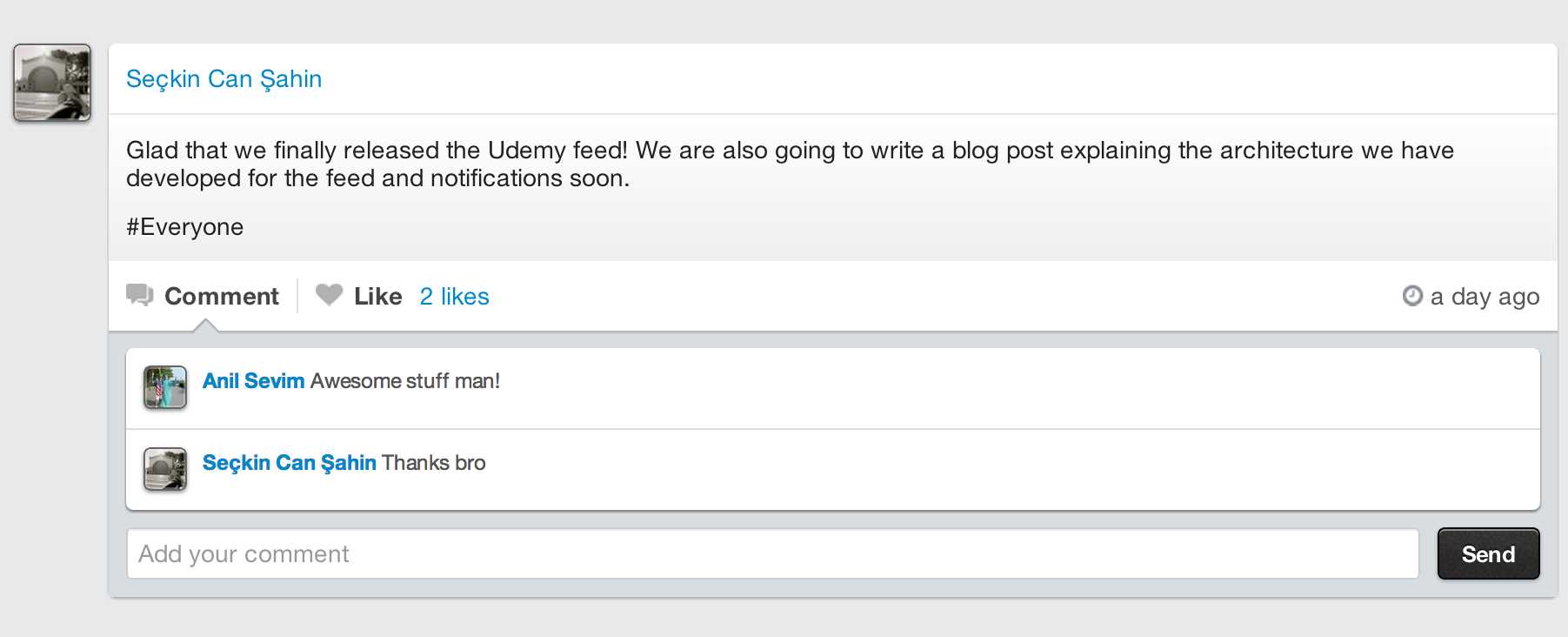
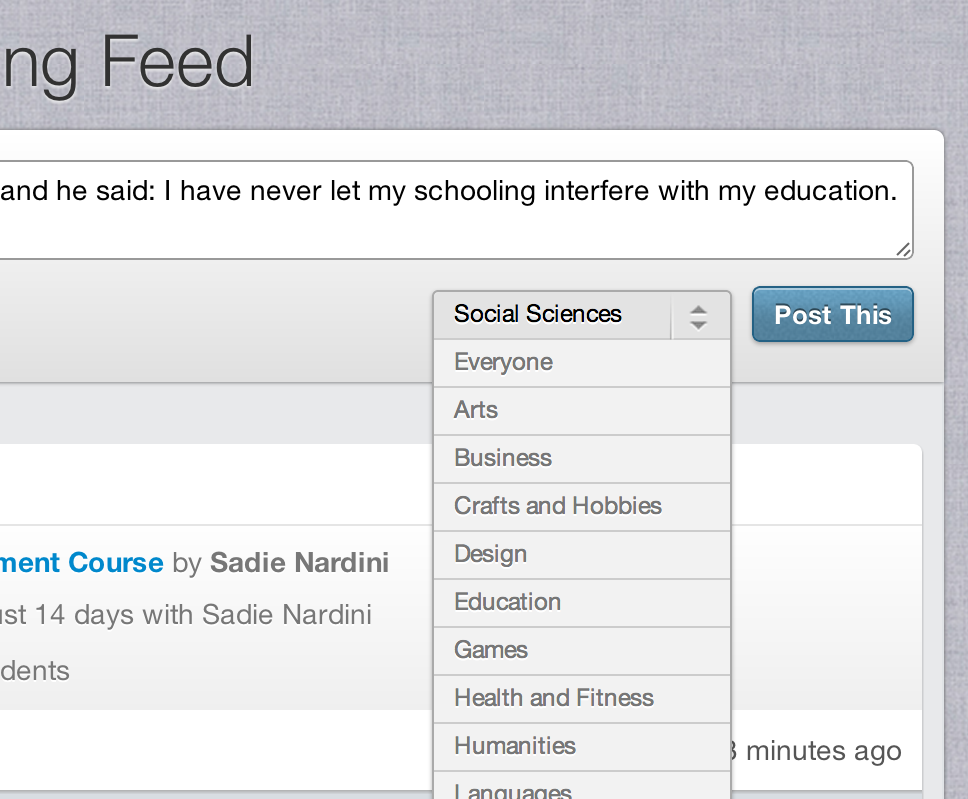
My Courses page
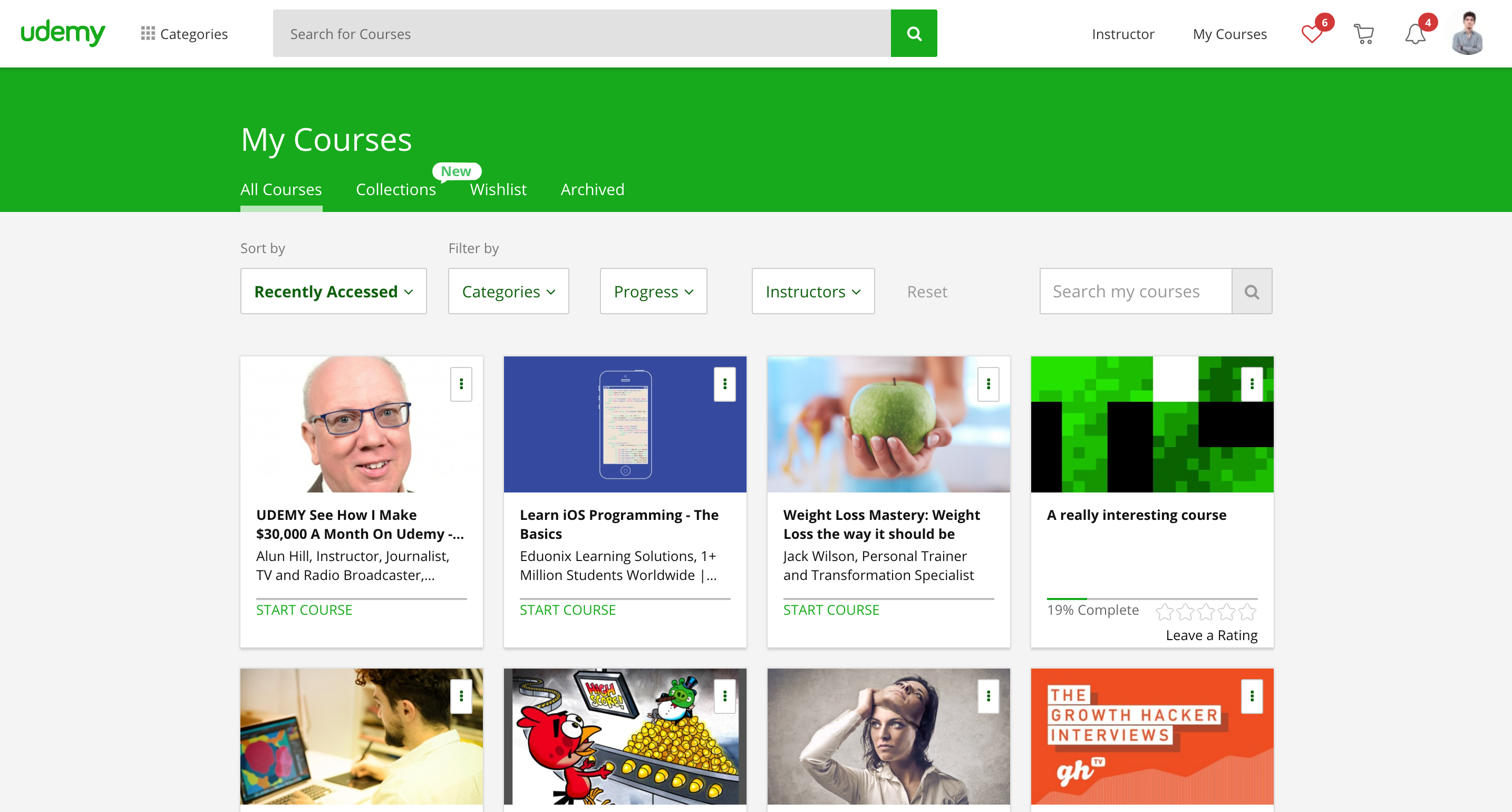
Implemented Notifications
One of the most challenging projects built at Udemy. Notifications are personalized, aggregated notifications need to be persisted and one announcement in a single course can trigger hundreds of thousands of backend jobs.
In spite of all these challenges, the system I built was still in use after the user base grew 40x.

Wishlists
Built the wishlist functionality and helped initiate some of the most lucrative email campaigns of Silicon Valley done at the time. We would send discount codes to users who added a course to their wishlist and didn't buy it in a month.
We were making around $1 per email on average.
